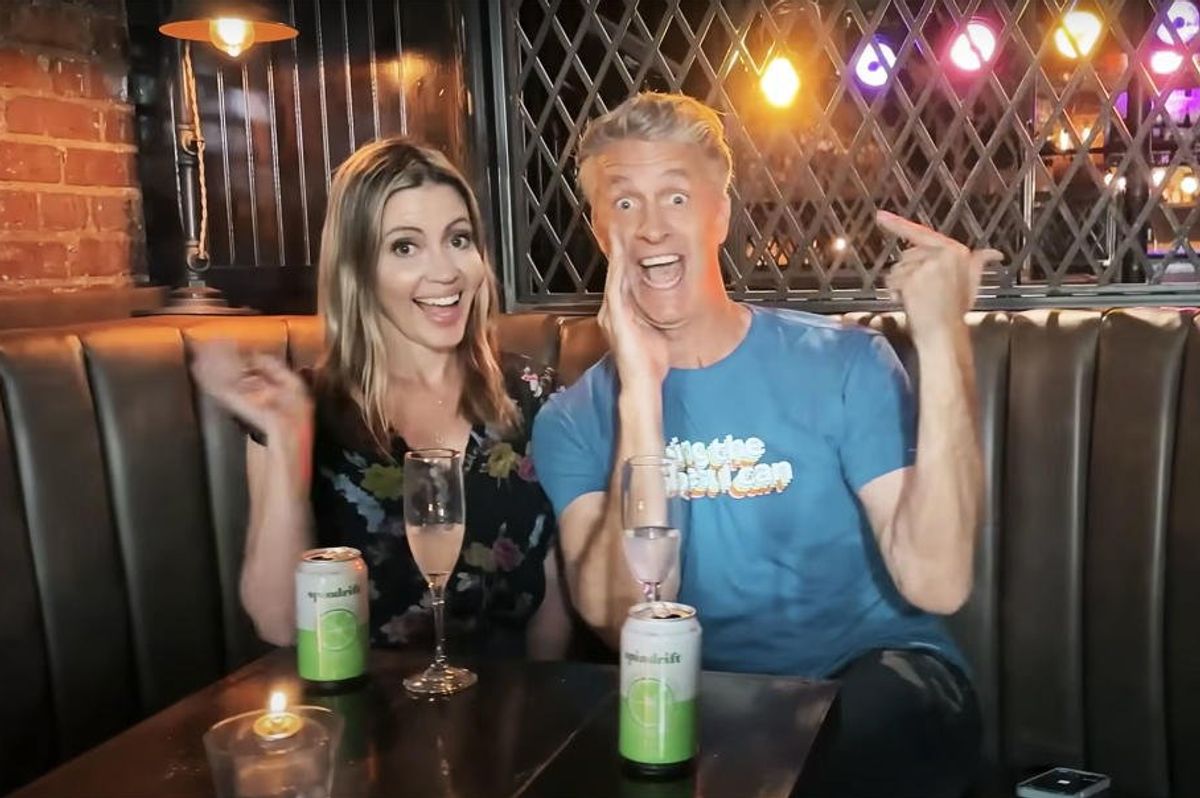Gen X couple share a delightfully cheesy rap song welcoming millennials into their 40s
This club is a little different, there's Wordle, seltzers and lots of houseplants.

"Welcome to the club, Millenials."
It is pretty wild to consider that Millennials are now entering their 40s and no longer hold the mantle of the young and up-and-coming generation. According to Pew Research, Millennials were born between 1981 and 1996, so these days they range between the ages of 29 and 42.
These are the years when people begin to settle down, start families and experience the first uncomfortable signs of aging.
The Holderness Family is headed by a Gen X couple, Kim and Penn Holderness, who are best known for their viral comedy songs. Their latest video is about welcoming Millennials to their next phase in life, one that’s less about spending all night in the club and more about embracing a quieter, more practical life.
In this case, “the club” isn’t a loud place to get a Long Island iced tea but a state of mind where you’re more likely to appreciate a good walk for your mental health.
Holderness Family Music has over 797,000 subscribers on YouTube and over 230 million views since they started their page in 2011. They “create original music, song parodies, and skits to poke fun of ourselves, the world we live in, and (hopefully) make you laugh.”
Welcome to the millennial club. Membership is mandatory!
The "Welcome to the Club, Millennials" video is a bit of a departure from the usual intergenerational bickering we’re accustomed to seeing on social media. Instead, Gen Xers open their doors to the Millennials entering the next phase in their lives. “Well, Gen X is here to say ‘don't be bummed, come on in, welcome to the club,’” Penn raps.
According to the song, if you’re a Millennial and have done any of the following, you’re officially in “the club,” whether you know it or not.
Hung a calendar on your fridge
Have strong opinions on who’s the best “Jeopardy!” host
Play Wordle
Wore reader glasses
Drink seltzers
Had Gen Z call your clothes “vintage”
Gone Christmas shopping in October
Had a three-day hangover
Gone to a movie theater because it serves food
Took a mental health walks
Bought a chair for your back
Grooved to supermarket music
Own plastic houseplants
Taken supplements
Saved money for a Disney vacation
Have zero f**cks to give
Still love Blink-182
Millennials who are a little leery of aging should be happy to learn that they may be in the happiest times of their lives.
According to developmental psychologists, the period of life between ages 30 to 45 is known as “established adulthood” and is a time of life when people are happiest.
Even though people in this age group are stuck in the “career and care crunch,” where they are likely to juggle a job while caring for children or older relatives, this developmental stage is also very fulfilling.
“Yes, people were feeling overwhelmed and talked about having too much to do in too little time,” Clare Mehta, Professor of Psychology at Emmanuel College, wrote in The Conversation. “But they also talked about feeling profoundly satisfied. All of these things that were bringing them stress were also bringing them joy.”
This article originally appeared on 5.01.23
- 17 Gen X Memes for the Generation Caught in The Middle ›
- Millennials nearing 40 are sharing their biggest mistakes so everyone can learn from them ›
- Parody of 'Living on a Prayer' about stair laundry is relatable - Upworthy ›
- Lil Wayne and Nelly try to use TikTok and fail hilariously - Upworthy ›
- Millennial shares 'proof' they're not aging as quickly as Gen Z - Upworthy ›
- Comedian rips aging millennials with indie anthem parody - Upworthy ›
- 42-year-old millennial shares the 'best' thing about getting older - Upworthy ›
- Brilliant new night club caters to Gen X and Millennial 'women with stuff to do' - Upworthy ›
- Legendary 2000s pop punk band fights the ticket monopoly with throwback 'house party' tour - Upworthy ›
- Comedian's hilarious video has Millennials sharing their own unique 'doorbell phobia' stories - Upworthy ›

